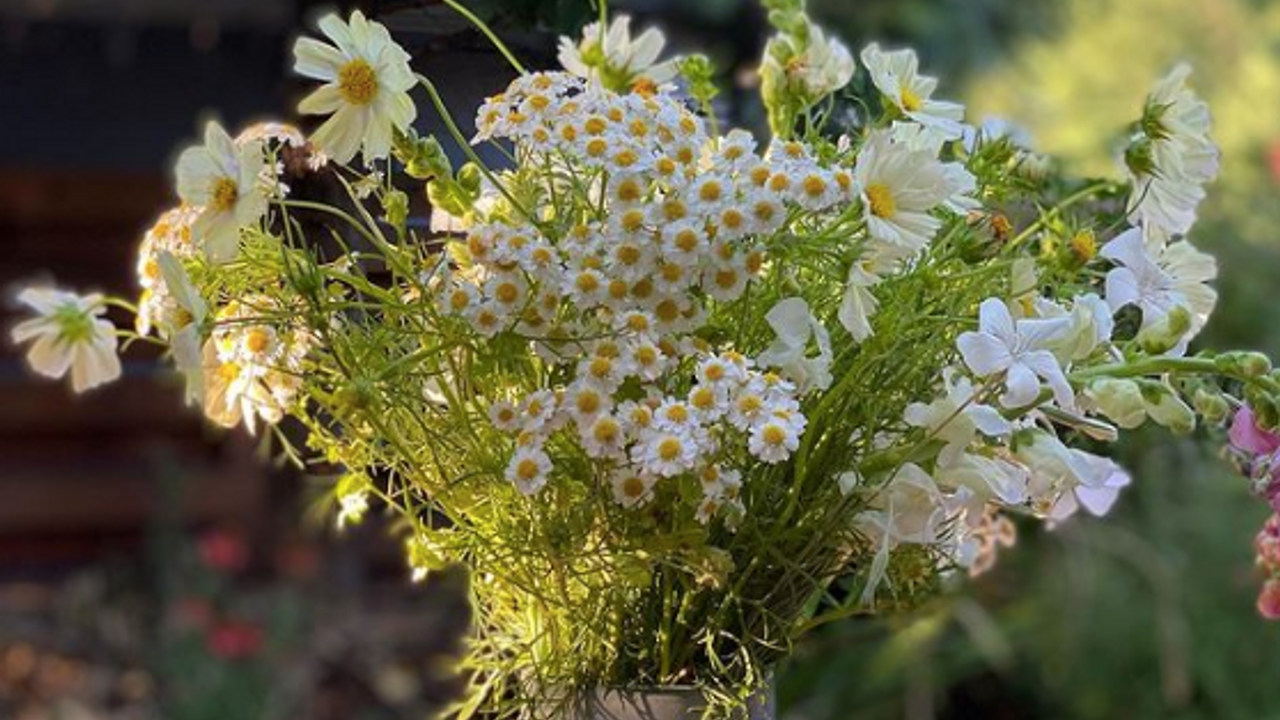
Story and photos by Erin Eberle, Owner, Nourish Edible Landscapes
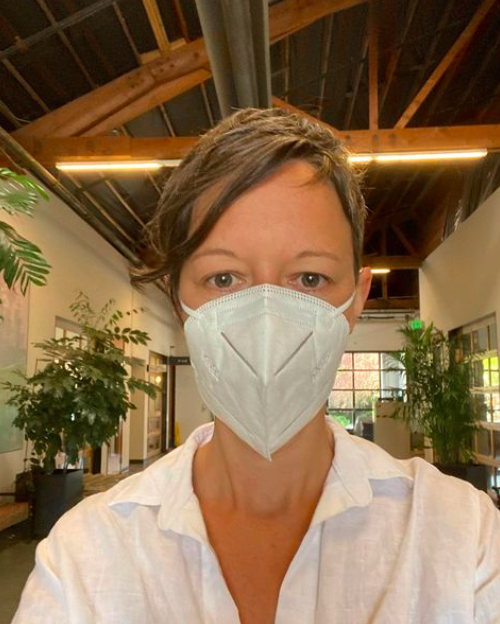
A desire to grow our own food isn’t new. Yet, as a result of industrialization and globalization most people have become removed from their local food system.
However, at the same time many are increasingly interested in where our food comes from, how it was grown, how the people who grew it were treated, and whether or not it's organic, etc. Planting and maintaining edible gardens, or foodscapes, is growing in popularity.
In the early days of the pandemic, my partner and I doubled down on the amount of food that we were already growing in our yard and in our community garden plot that we tend at the nearby elementary school. It was during conversations with neighbors, friends and family about seeds, plants, soil, and gardens, that I realized my love of all of these things could become my “job.” Although Portland is a garden town, it became clear through these conversations that while many people desired to grow their own food, they lacked the time and often the skills and knowledge to do so.
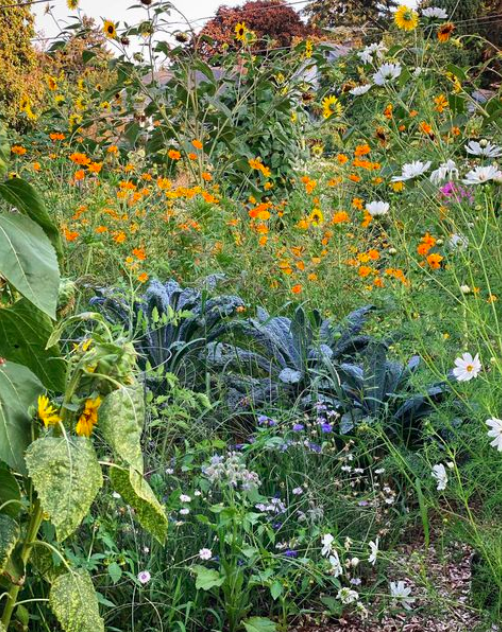
2020: A Foodscaping Business Is Born
As a queer womxn living and working in Portland, Oregon I decided to seize the opportunity to channel my decades of experience with organic and biodynamic farming, urban farming systems, and knowledge of food systems and gardening into a new professional path and in 2020 Nourish: Edible Landscapes was born.
Nourish designs and maintains climate-resilient, food forward gardens that nourish land, body, and mind. I take a naturalistic approach to design, and listen to the ecosystem of which I’m a part. I believe that good food and beautiful landscapes should be accessible to all, and offer a range of services designed to meet all needs. Equity is a core value that drives my work.
Here are a few principles and practices I’m employing to make my foodscaping business more equitable.
1. Lower cost consultations for historically and currently marginalized communities
It was essential for me to design my business in a way that included everyone. This means offering services via tiered pricing, and offering low cost/free consultations for BIPOC, womxn, and Trans folks without the financial means. Foodscaping services are often sought by homeowners, so I ensure my services are marketed to those living in a range of ways including renters, and ideally even extending in the future to pro-bono consulting within houseless communities.
2. Honor the history of the land and Indigenous communities
We can’t discuss edible landscaping without first acknowledging that we are on unceded Indigenous lands, and owe a great deal of the wisdom we hold today about plants to Indigenous communities. Indigenous ways of knowing about land, plants, biodiversity, and more than human relationships are at the center of permaculture, regenerative ag/farming, and urban farming. From soil building, to seed saving, crop rotation and companion planting, these techniques have always been a part of indigenous foodways.
3. Consider donating a portion of your profit to support Indigenous communities
I acknowledge that the land where I live and work are the traditional village sites of the Multnomah, Kathlamet, Clackamas, Tualatin, Kalapuya, Molalla, bands of the Chinook, and many other Tribes who made their homes along the Columbia River.
I'd encourage anyone reading this to look into their own communities and to learn about the original inhabitants of their lands, to connect with community members who may still be residing on those lands today, and to consider donating a percentage of your edible landscaping business proceeds to a land rematriation organization.
One action step is to support land back and rematriation projects. In the Bay Area area, for example, the Sogotea Te' Land Trust offers a tool to help you calculate your individual Shuumi land tax amount. And in the Portland area, Native American Youth and Family Center is an urban Indian agency that works to enhance the diverse strengths of youth and families in partnership with the community through cultural identity and education with projects like the Native Gathering Garden at Cully Park.
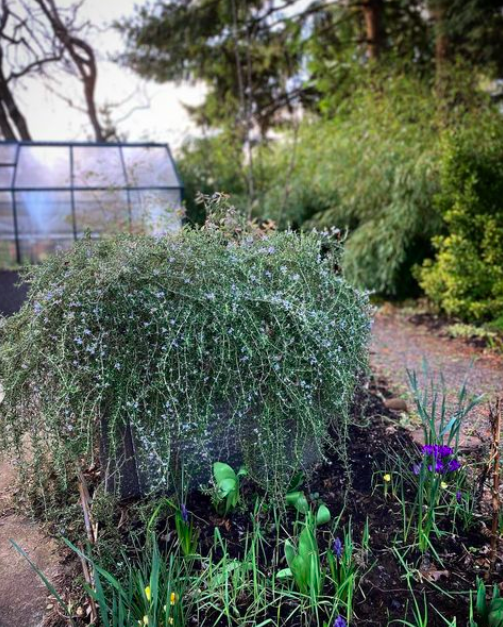
4. Network with your city officials, social justice leaders, community partners
Build relationships with students and community organizations working at the intersection of social justice and food sovereignty to center edible landscapes as a form of community healing.
I've been in conversation with People’s Housing Project who is very interested in the idea of designing and creating roving edible gardens and kitchens, but some of the challenges are creating spaces that can be easily moved if these housing communities are swept by the police, and also consistency with maintenance. There is no budget for these projects, although I have made a pitch to Portland City Commissioners about including edible garden space in their proposed "rest villages" plan. Nourish also grows produce for Produce for the People, a program started by our community garden volunteers to help support the Northeast Community Food Pantry. We grow extra produce each season to harvest and donate to this neighborhood program.
5. Share the message that foodscapes generate health in a community
A study from University of Pennsylvania et.all in 2018 found that access to “greened” vacant lots reduced feelings of worthlessness and depression, especially in low-resource neighborhoods. What might be possible if we, as a collective, prioritized edible landscapes as a key component of our urban planning?
I encourage my edible landscaping community to take stock of their practices and to reassess their relationship to land and communities. What future might be possible if the voices and practices centered in this work reflected a wider range of experiences, needs, and histories?
As I live into the concept of “right livelihood,” I can’t imagine a more fulfilling profession than the one I’m creating with Nourish. Connecting with the community, empowering individuals to grow food and steward their lands intentionally, and designing beautiful, food forward landscapes that help curb the impacts of our climate crisis is an honor that I hope I’ll have for many years to come.
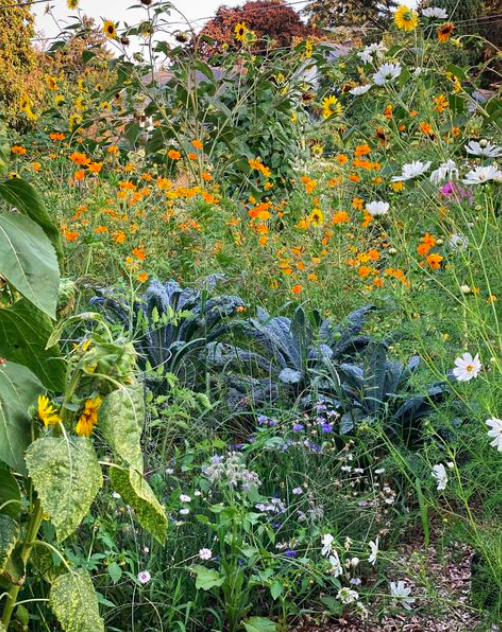
Erin’s Inspirations
Masanobu Fukuoka : One Straw Revolution
Grow Good: An Inspired Urban Farm
Fritz Haeg : Edible Estates and Salmon Creek Farm
Robin Wall Kimmerer : Braiding Sweetgrass
Devon Mihesuah : Recovering Our Ancestors’ Gardens
Leah Penniman : Soul Fire Farm
Sole Food Street Farms : Vancouver, B.C.
Julia Watson : Landscape Architect
Rowen White : Indigenous Seed Steward

